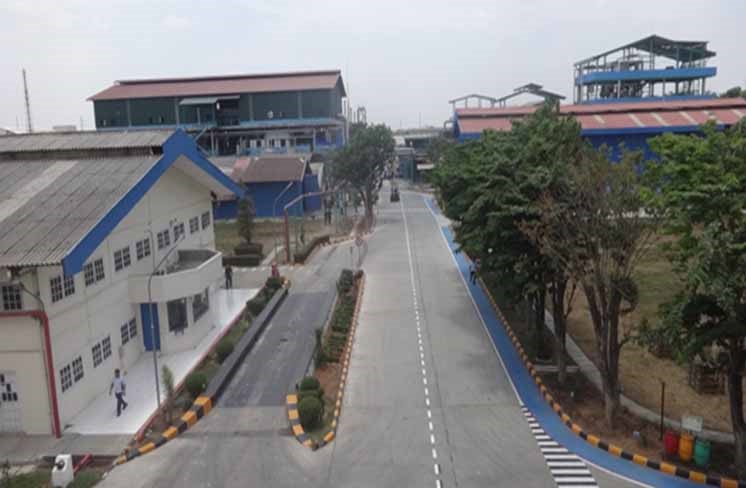DIC Subsidiary in Indonesia Adopts PKS as Boiler Fuel —Company promotes full-scale shift from fossil to biomass fuels to reduce CO2 emissions—
- Sustainability
- News Release
Tokyo, Japan–DIC announced today that wholly owned subsidiary PT. DIC Graphics, based in Jakarta, Indonesia, launched an initiative in January 2018 aimed at replacing a portion of the coal used to fire boilers producing thermal energy for internal use at its Karawang Plant, a pigment production facility, with palm kernel shells (PKS).
A renewable fuel, PKS is attracting considerable attention worldwide from the perspective of carbon neutrality because it offers an effective way to help limit CO2 emissions. Indonesia is the world’s second-largest producer of palm oil. Accordingly, PKS, a palm oil mill residue, are available in large quantities. The DIC Group made the decision to adopt PKS, despite the fact that is more costly than coal, the principal fuel currently used to fire the Karawang Plant’s boilers, because it is a solid fuel like coal with an essentially equivalent calorific value.
Since being acquired by PT. DIC Graphics as a subsidiary in 2012, the Karawang Plant has seen steady growth in production volume, which has driven up energy consumption. Curtailing the resulting sharp increase in CO2 emissions is thus a critical challenge facing the plant. In 2017, the plant kicked off a project aimed at reining in its environmental impact, acquiring certification under ISO 50001, the international benchmark for energy management systems, introducing PKS on a trial basis and realizing an annual decrease in CO2 emissions of approximately 5,000 metric tonnes by replacing around 12.0% of the coal used to fire its boilers with PKS. Beginning in fiscal year 2018, the plant has increased the portion of coal replaced with PKS to 25.0% with the goal of boosting its annual reduction of CO2 emissions to 10,000 metric tonnes from the 2016 level and in doing so to contribute to a decrease in overall CO2 emissions by the DIC Group of approximately 2.0%.
The DIC Group has set a target for the reduction of its overall CO2 emissions of 7.0% from the fiscal year level by fiscal year 2020, an average annual decrease of 1.0%, in line with which it is taking steps to lower energy consumption and carbon footprint. To these ends, the Group has invested in the installation of biomass boilers, wind power facilities, solar power facilities and cogeneration systems, among others, with the goal of helping to combat global warming. Going forward, the Group will continue working to cut its emissions of greenhouse gases with the aim of contributing to the realization of a sustainable society.
-Ends-
*Note: The files are in Adobe Acrobat Format. To view them you will need Acrobat Reader.



